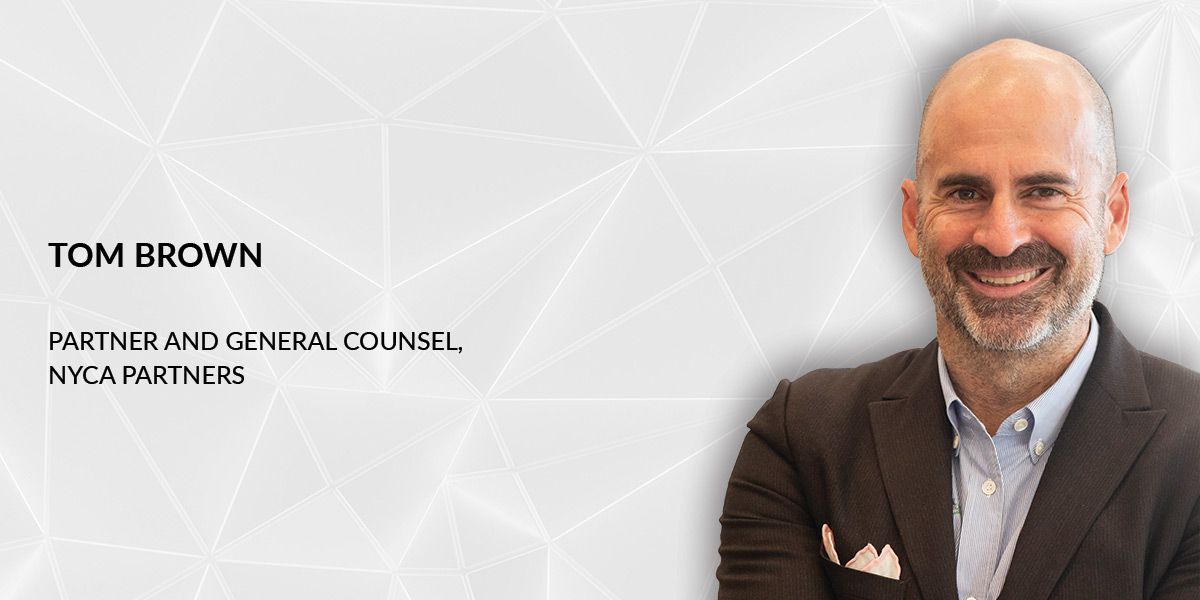Knowing Where the Buttons Are (or Why Every FinTech Should Have a Good Lawyer Around)
Tom has been an attorney in the financial services industry for more than two decades. He began his career as an antitrust litigator and was part of the team that defended Visa against antitrust attacks. He then went in-house at Visa where he kicked started the company’s reorganization. After returning to private practice, he won important cases for eBay/PayPal, received the first-ever no-action letter from the CFPB, and made the case for consumer permissioned access to financial information under Section 1033 of Dodd-Frank. In addition to his role at Nyca, he remains an advisor to Paul Hastings and Restive Ventures. He is a member of the American Law Institute and the Editorial Board of the ABA’s Antitrust Law Journal. He graduated from the University of Chicago Law School and has an undergraduate degree from Columbia University.

I often get asked why I made the switch from lawyer to investor. Usually, it is from lawyers slightly jealous that I no longer need to account for my time in six-minute increments and sometimes from financiers slightly wary that I am encroaching on their turf. Although there is no single answer to that question, I thought the launch of this column would be a good place to lay out why I did what I did and what I believe every entrepreneur building in the FinTech space should look for in a lawyer.
At the outset, and betraying the training that started me on this path, I do not accept the dichotomy that is the premise of the question—i.e., lawyer or investor. I was an investor before I made the switch to a full-time venture investor, and I remain a dues-paying lawyer. But however reframed, it remains an interesting question and one that I asked myself quite a bit before exchanging one set of titles for another.
For me, the answer starts with the observation that law is a reactive instrument. Courts, under our Constitution, are constrained to decide a specific “case and controversy.” This means that they must resolve a specific dispute between an identifiable set of parties with a stake in the outcome. Pure hypotheticals are not allowed. The core institutions that govern the financial system are also reactive. The CFPB was proposed as a tool to avoid a repeat of the Great Recession. The SEC and FDIC were created to avoid a repeat of the Great Depression. The Federal Reserve was devised to solve the problem that gave rise to the Panic of 1907. Even the Constitution is reactive. George Washington, James Madison, Alexander Hamilton, et al., gathered in Philadelphia to address the problems embedded in the immediately prior governing document, the Articles of Confederation.
But (and with lawyers there is always a “but”) lawyering, unlike the law, is not necessarily reactive. Lawyers call it the skill of “seeing around corners.” Not all lawyers possess this skill, but when an entrepreneur finds one who does, she should grab and hold on. The best analogy is the skill that some people who play video games have: “knowing where the buttons are.” Whether you are a devotee of FIFA (as I am) or Modern Warfare, some gamers have the intellectual and kinetic ability to move their fingers in the right order at the right time to unlock powers (virtually speaking) of which the rest of us can only dream. Some lawyers are like that, too. They have the ability to connect clients to opportunities that seem out of reach.
At the risk of self-aggrandizement, I have helped my clients see around corners repeatedly over the course of my career. I have helped them change their corporate structure to reduce, as much as legally possible, the risk of being sued over and over again and, in the process, unlock access to billions of dollars in hidden value. I have helped them secure permission to offer services as agents of banks without having to secure permission to offer those services on a state-by-state basis. I have helped them use new models and incorporate new signals to provide credit to consumers. In each instance, the solution emerged from using a solution in one area of law (e.g., corporate organization) to address a problem in a different domain (e.g., competition law).
Here, I felt the closest kinship with venture investors. Founders turn to investors to help them realize their vision of what the future might bring, and the best founders recognize that the best venture capitalists bring more than just a check. Founders want investors that can turn their ideas into realities. As I was nearing the end of my last chapter at Paul Hastings, I found it easier to connect to founders by writing them a check and offering my two cents based on a lifetime of experience as opposed to chasing them to pay the most recent bill.
In short, although I have reversed the order of the words that describe my professional identity, I am still here to help entrepreneurs see around corners. In future columns, I will identify some of the corners that interest me at the moment and the ways that law and regulation might help entrepreneurs get around them.
All opinions expressed by the writers are solely their current opinions and do not reflect the views of FinancialColumnist.com, TET Events.
